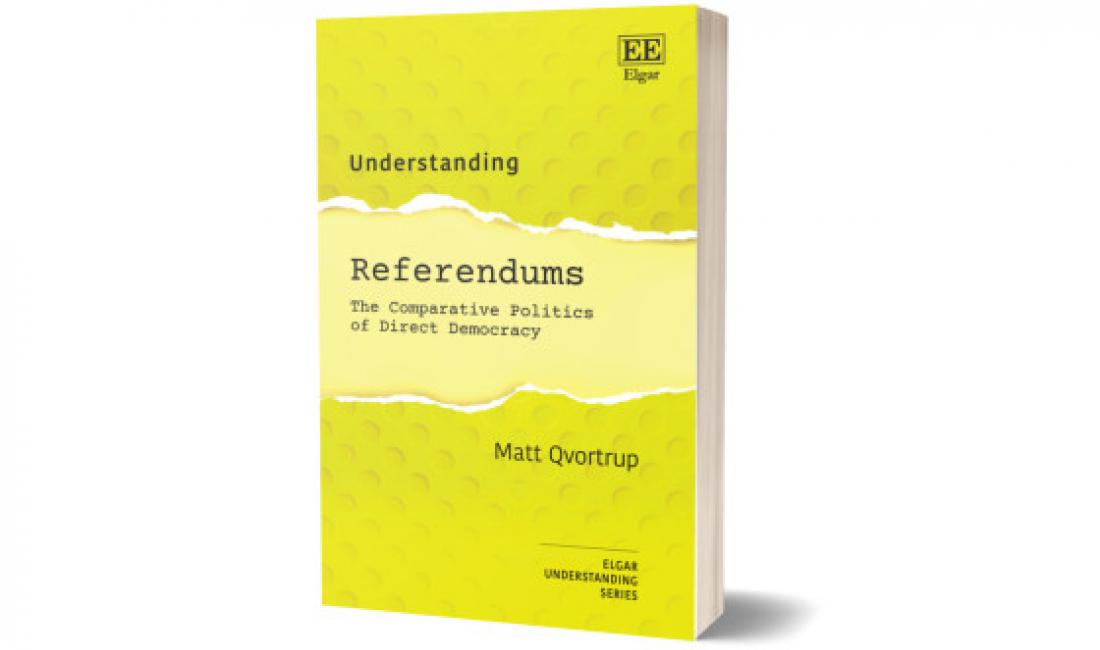Understanding Referendums by Matt Qvortrup
Understanding Referendums: The Comparative Politics of Direct Democracy
By Matt Qvortrup
Edward Elgar Publishing Limited, 2025
170 pp.
In the summer of 1905, the Norwegian Department of Ecclesiastical Affairs ordered Luthern pastors to shorten their planned sermons on Sunday, Aug, 13, and “arrange the service that it will be finished in good time before 1 p.m.”
The reason was a matter political and national. That Sunday afternoon was the time for the referendum on Norway’s independence from the dual monarchy of Norway-Sweden.
Referendums, the name for votes on issues, can change all kinds of things, and influence matters big as nationhood and as small as the time that church lets out. In this slim and sharp volume, Matt Qvortrup, a globetrotting political scientist and world expert on democratic practice, offers a Rashomon-like account of referendums, from all perspectives.
In the process, he debunks a conventional wisdom among scholars that referendums are democratic instruments for circumventing powerful governments and interest groups.
To the contrary, he writes, referendums are often proposed, employed, or manipulated for the benefit of the most powerful people in societies. and giving too much to the people. The referendum has become an instrument in the hands of governments or rulers; an institutional device that is used to give the impression that ‘the people’ speaks,” he writes.
Qvortrup adds: “While not all referendums are captured by the oligarchy, it is often the case of an institution that is aimed at providing the appearance of popular power and is in reality at tool that augments the power of an elite.”
Direct democracy, like local democracy, is often dismissed as a minor issue. Qvortrup recounts that when he began his PhD at Oxford in the 1990s, colleagues warned him against studying referendums, because they were uninteresting or rare.
But Qvortrup documents a surge in referendums since 1970, and shows how referendums have been used to integrate Europe, end South Africa apartheid, decolonize, change constitutions and voting systems.
He dismisses easy narratives about referendums. There aren’t that many referendums in democracies, and more than you’d expect in autocracies, but the greatest numbers of referendums take place in countries on the threshold of becoming democracies. Referendums tend to favor the right more than the left, but they also are associated with wealth. For every additional referendum a country holds, a citizen becomes $433 richer.
Referendums can do damage. They can be used by rulers to impose policies from above. But they also offer protection for democracy. “Where referendums have a better track record is as a brake on the ambitions of charismatic and larger-than-life leaders of a populist bent,” among them Viktor Orban and Hugo Chavez.
Qvortrup is also a scholar of secession and independence movements (his previous book I Want to Break Free occupies a prime spot on the desk of this reviewer, who is a sympathetic to California independence), and Understanding Referendums shines especially when he talks about the use of referendums to seize autonomy or form new countries.
He recounts Chile’s vote to secede from Spain in 1818, and more than 60 referendums since, including the votes by the states of Texas, Virginia and Tennessee to leave the Union in the American Civil War, the adoption of a secessionist constitution by Filipino voters in 1935 and a host of votes held after the breakup of the Soviet Union.
“Generally, referendums on independence are held not just to provide a mechanism for providing support for secession, but to consolidate and cement the feeling of national unity,” Qvortrup concludes.
And like those unifying referendums, this book should inspire unity about Qvortrup’s work: it’s indispensable, no matter what you think of this particular democratic tool.




